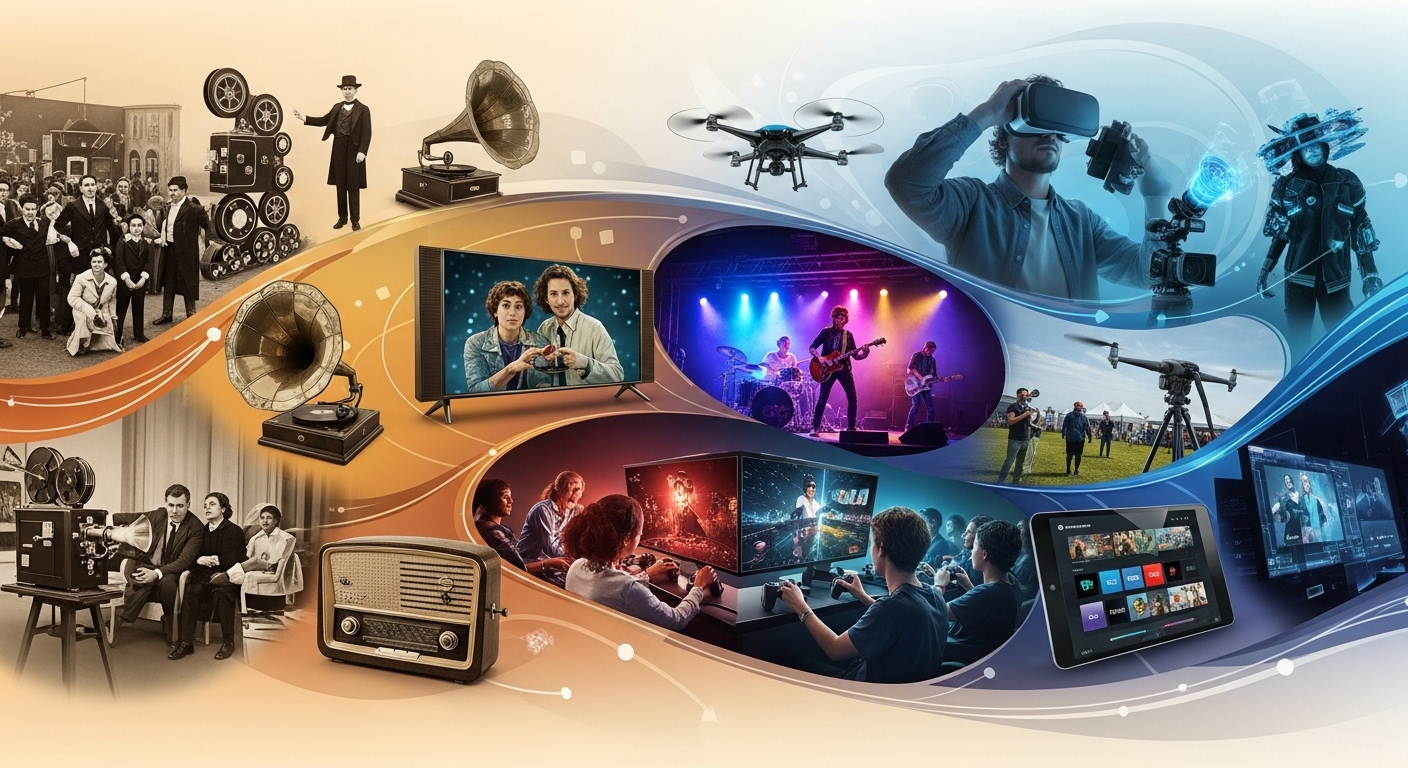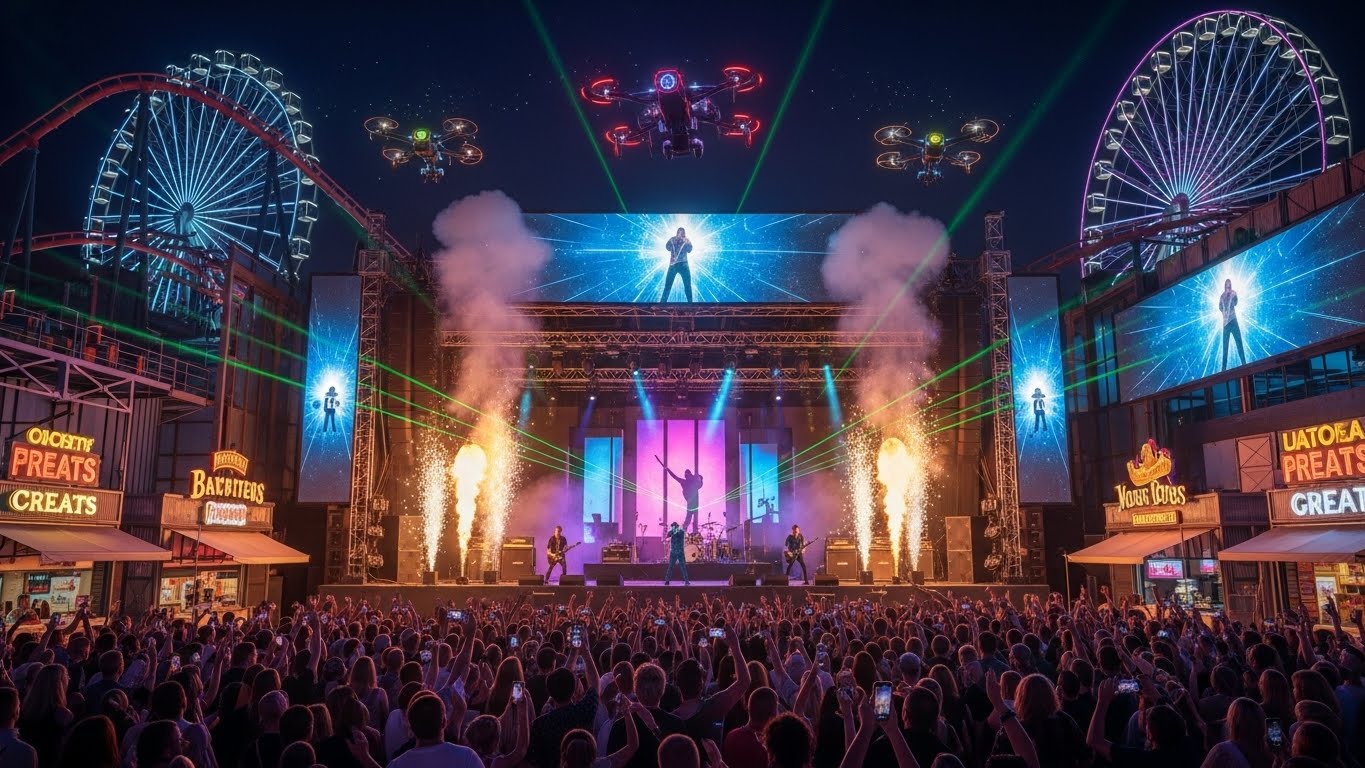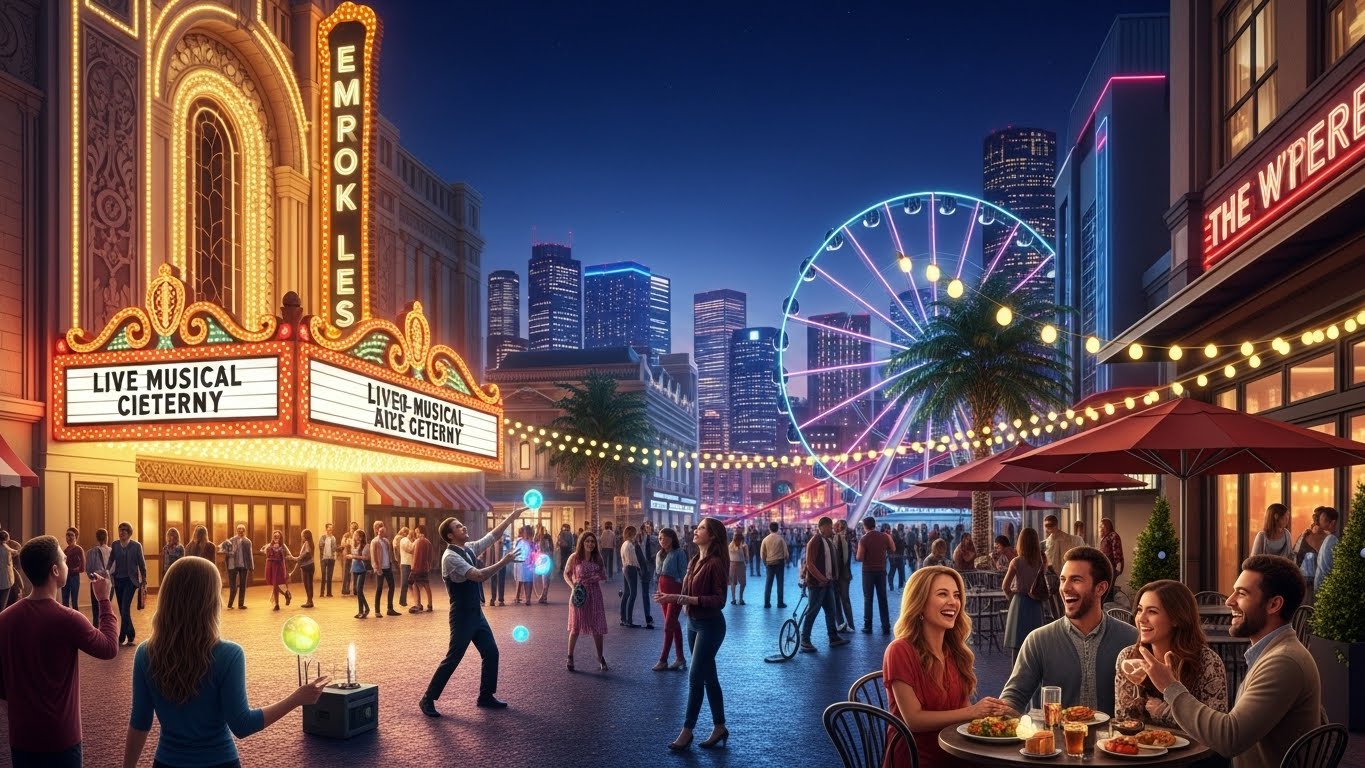Introduction
Entertainment has always been one of the most defining aspects of human existence. It reflects who we are, what we value, and how we connect with one another. From ancient storytelling and live performances to the dazzling world of digital content and streaming platforms, entertainment has transformed dramatically. What was once simple leisure has evolved into one of the most powerful industries on Earth, shaping cultures, economies, and even the way we perceive ourselves. Today, entertainment is not just about amusement—it is about identity, innovation, and global unity. This article explores the evolution of entertainment, its impact on society, and the fascinating ways it continues to influence the modern world.
The Origins of Entertainment
Entertainment began as a communal activity deeply rooted in human history. Thousands of years ago, before written language or technology, humans used music, dance, and storytelling to share knowledge and emotions. Cave paintings depicted hunting scenes not only to record life but to tell stories that entertained and educated future generations. Ancient civilizations like Egypt, Greece, India, and China developed their own forms of entertainment that combined ritual, art, and performance.
In Greece, theater was more than just a pastime—it was a reflection of philosophy, politics, and human nature. The tragedies and comedies performed in open-air amphitheaters captured the complexities of life in powerful narratives that still inspire artists today. Meanwhile, in Rome, entertainment took the form of grandeur and spectacle, with gladiatorial games and chariot races attracting massive crowds. Across Asia, puppetry, dance, and poetry flourished as refined cultural expressions. These early examples illustrate how entertainment has always been a reflection of societal evolution and the human spirit.
The Birth of Performing Arts and Literature
As societies grew, so did their forms of entertainment. The performing arts became a significant part of human culture. Music, dance, and theater merged to create storytelling experiences that transcended spoken language. Literature, too, emerged as a form of entertainment and intellectual pursuit. Ancient epics such as the Iliad, Mahabharata, and The Tale of Genji were not only stories but cultural pillars that passed on values and traditions.
The Renaissance period marked a turning point. The arts flourished as Europe rediscovered creativity and intellect. Shakespeare’s plays, Mozart’s compositions, and da Vinci’s art became symbols of a golden age where entertainment met genius. The performing arts grew into professional industries, and the theater became a place where imagination met reality.
The Industrial Revolution and the Age of Mass Entertainment
The Industrial Revolution in the nineteenth century introduced new technologies that reshaped entertainment. Printing presses allowed for the mass distribution of books, newspapers, and magazines. Photography emerged as an innovative art form, capturing real-life moments for public enjoyment. With the invention of the phonograph and the radio, people could listen to music and spoken performances without leaving their homes.
This period also saw the rise of organized sports, circuses, and variety shows. Entertainment became more accessible to the working class, offering a form of escape from the challenges of industrial life. The concept of leisure time was born, and with it came the first steps toward a global entertainment industry.
The Dawn of Cinema
Perhaps no invention revolutionized entertainment as profoundly as the motion picture. The late nineteenth and early twentieth centuries saw the birth of cinema—a magical new medium that combined storytelling, art, and technology. Early silent films captivated audiences with humor, drama, and innovation. The arrival of synchronized sound, known as “talkies,” transformed cinema into a powerful storytelling tool.
Hollywood soon became the heart of this growing art form. The golden age of film during the 1930s to the 1950s produced some of the most iconic movies ever made. Stars like Marilyn Monroe, Humphrey Bogart, and Audrey Hepburn became symbols of glamour and sophistication. Film studios perfected genres ranging from romance and action to science fiction and comedy. Movies began to influence fashion, language, and even politics, making entertainment a driving force in cultural evolution.
The Rise of Television
Television brought entertainment directly into people’s homes. It changed how families spent their evenings, creating shared experiences through programs, sitcoms, news, and sports. The small screen offered convenience and intimacy, allowing people to connect with stories and personalities on a daily basis.
The invention of color broadcasting and the expansion of cable networks transformed television into a global medium. Shows like I Love Lucy, Friends, and The Simpsons became cultural landmarks. Game shows, reality programs, and live broadcasts expanded its diversity, offering something for everyone. Television also played a crucial role in shaping public opinion and introducing viewers to global issues.
The Digital Revolution and Streaming Era
The arrival of the internet changed entertainment forever. Streaming platforms transformed how we consume music, films, and shows. Instead of waiting for weekly episodes or physical copies, audiences could now watch anything, anytime, anywhere. This on-demand culture gave rise to binge-watching and algorithm-based recommendations.
Streaming democratized entertainment by giving creators access to a global audience. Independent filmmakers, musicians, and comedians could share their work without needing major studios or labels. Content creation became decentralized, allowing millions to express themselves freely. However, it also intensified competition and fragmented audience attention. Still, digital media remains one of the most liberating advancements in entertainment history.
Music: The Universal Language of Emotion
Music has always been at the heart of entertainment. It is timeless, borderless, and emotionally powerful. From classical symphonies to hip-hop beats, music tells stories that words alone cannot. Throughout history, it has been used to celebrate victories, mourn losses, and unite communities.
The music industry has evolved with every technological shift. Vinyl records, cassettes, CDs, and now digital streaming each defined generations of listeners. The rise of global artists brought diverse cultures to mainstream audiences, expanding musical appreciation beyond borders. Concerts and music festivals have become cultural events that unite people across continents.
Today, musicians not only entertain but also influence social and political movements. Music remains one of the most accessible and transformative forms of entertainment, capable of changing hearts and minds.
Gaming: The New Frontier of Interactive Entertainment
Video games have grown from a niche hobby into a dominant entertainment industry worth billions. Games like Super Mario, The Legend of Zelda, and Grand Theft Auto have shaped generations of players. Unlike traditional entertainment, gaming is interactive—it allows people to engage with stories, characters, and environments in real time.
Modern games combine cinematic storytelling, music, and visual art, blurring the line between film and play. The rise of esports has made gaming a professional sport, complete with tournaments, sponsorships, and massive audiences. Online multiplayer games have also fostered communities that transcend geography and language.
Gaming technology continues to evolve with virtual and augmented reality, offering immersive experiences that push creativity to new limits. It represents the future of entertainment, where audiences are not just spectators but active participants.
The Role of Social Media in Modern Entertainment
Social media has completely redefined entertainment. Platforms allow anyone to create and share content instantly. Viral videos, short clips, and live streams have become the new form of daily amusement. Influencers and content creators have risen as modern-day entertainers, often rivaling traditional celebrities in popularity.
Social media’s interactive nature makes it a two-way street—fans can engage directly with creators, shaping the content they see. While this has created new opportunities for creativity, it has also sparked concerns about digital addiction, misinformation, and superficial fame. Nevertheless, it remains one of the most influential forces in the entertainment landscape.
The Business of Entertainment
Entertainment is not just art—it is a global industry that generates immense revenue. Film studios, music labels, streaming companies, sports organizations, and gaming developers form a massive economic ecosystem. Advertising, sponsorships, and merchandising expand the reach of entertainment beyond screens and stages.
The business of entertainment thrives on innovation and audience connection. However, it also faces challenges such as piracy, copyright infringement, and changing consumer behavior. The rise of digital subscriptions and online monetization models has forced companies to rethink how they deliver value while maintaining artistic integrity.
Cultural Impact of Entertainment
Entertainment does more than provide enjoyment—it shapes cultural identity. Films and music often reflect societal changes and challenge existing norms. They bring visibility to marginalized voices and foster empathy across communities. Entertainment influences everything from fashion to language and even political movements.
Throughout history, entertainment has played a role in breaking barriers and sparking dialogue. It serves as both a mirror and a catalyst, reflecting society’s struggles while inspiring transformation.
Technological Innovations Shaping the Future
Emerging technologies like artificial intelligence, virtual reality, and holography are revolutionizing entertainment. AI can generate scripts, compose music, and even simulate lifelike performances. Virtual concerts, 3D cinema, and immersive storytelling are redefining audience engagement. The metaverse concept promises shared virtual worlds where entertainment becomes fully interactive and social.
Technology continues to blur boundaries between reality and imagination, giving creators limitless tools to explore new forms of art. As entertainment becomes more personalized, the future will likely see tailored experiences designed to match individual emotions and preferences.
The Challenges Ahead
While entertainment continues to evolve, it faces critical challenges. Issues such as digital fatigue, content oversaturation, and privacy concerns threaten the balance between creativity and consumption. The industry must also address representation and ethical responsibility, ensuring diverse voices are heard and respected.
Additionally, the rapid pace of technological change can sometimes overshadow the human touch that makes entertainment meaningful. Finding harmony between innovation and authenticity will be key to preserving the soul of art and creativity.
Conclusion
Entertainment is much more than an escape—it is a reflection of the human experience. It evolves with time, embracing new technologies and cultures while retaining its fundamental purpose: to connect, inspire, and express. From ancient theaters to digital screens, from poetic songs to immersive virtual worlds, entertainment remains a celebration of creativity and imagination.
As we step into the future, entertainment will continue to shape how we live, learn, and dream. It unites humanity in laughter, tears, and wonder. In every era, it reminds us that storytelling, in all its forms, is what keeps our shared humanity alive.



